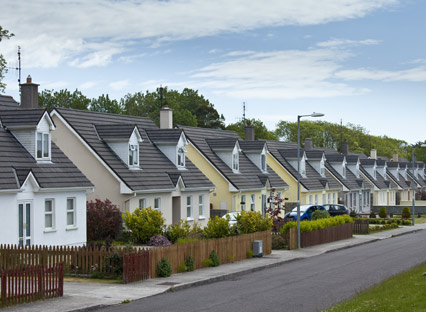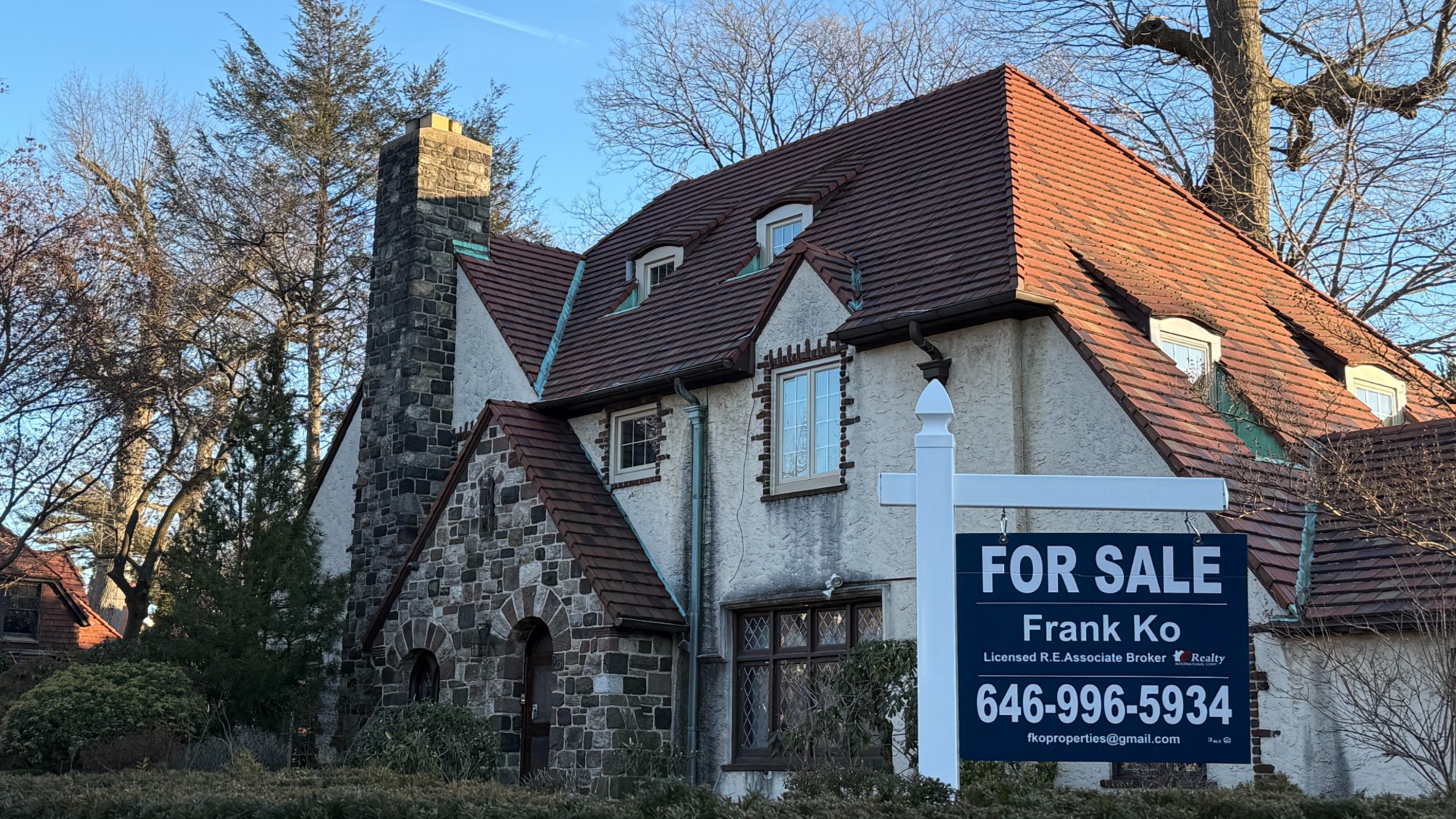Three suggestions to solve the housing shortage
The MoD is sitting on redundant military bases ripe for house building

A free daily email with the biggest news stories of the day – and the best features from TheWeek.com
You are now subscribed
Your newsletter sign-up was successful
When the government announced its intention to simplify and relax the planning system, it knew it was courting trouble. Rural groups and the heritage lobby have been quick to claim that the countryside has been put up for grabs, to quote the National Trust, or at any rate that the proposals would mean more building in places where it is not welcome. The latter, at least, must be true – otherwise there would be no point in the proposals.
But the government's riposte that more homes are needed, and that the places where they are needed most are often those which resist them most fiercely, is also true. With the population booming and house building at its lowest level since the 1920's, this, too, could hardly be otherwise.
Last winter a similar outcry over selling off state-owned forests produced a rapid climbdown by the government. This time round, however, ministers sense that their critics are vulnerable – perhaps more than they realise - to the charge that they don't care about young people struggling to get on the housing ladder, or the need to get the economy growing again. But even if another U-turn looks unlikely, the problem is not just about where developers want to build; it is also about what they build, and especially how it looks. It is not only in the countryside that we do not like building. We don't much like it in towns or suburbs, and very often not in the cities either. Over the last few decades, we have got ourselves into a vicious circle whereby much modern development – and particularly housing – is so cramped, repetitive and unattractive that it reinforces the prejudice against itself.
The Week
Escape your echo chamber. Get the facts behind the news, plus analysis from multiple perspectives.

Sign up for The Week's Free Newsletters
From our morning news briefing to a weekly Good News Newsletter, get the best of The Week delivered directly to your inbox.
From our morning news briefing to a weekly Good News Newsletter, get the best of The Week delivered directly to your inbox.
Ironically, one of the main reasons for this is that the tight planning restrictions we rely on to protect the environment have driven the price of building land to such astronomical levels that not only are flats, houses and gardens all much smaller than they used to be, but too little money is left over for decent design, materials and finishes. Another unintended effect of the current system is that it is now so costly and difficult to get permission for new developments, that only the biggest house builders have the resources to manage it. The result is an industry dominated by half a dozen or so big players, who turn out the same depressingly uniform designs up and down the country.
The most effective way to improve the quality and variety of modern housing would be to reduce the dominance of the big developers, and – most important of all – to build at lower densities. The snag, of course, is that this would require releasing more land, which is precisely what the opponents of reform most fear. But there are things that could help square the circle.
First off, the government should reintroduce minimum space standards for new homes, on the lines of the old Parker Morris rules, as Boris Johnson is trying to do in London.
Second, the government should release more of its own land for house building. The MoD, in particular, is sitting on a multitude of semi-redundant military bases, many in the southern half of England where the pressure for new homes is most acute. Between them they account for tens of thousands of acres of brown field land, much of which could be used for low-density housing.
A free daily email with the biggest news stories of the day – and the best features from TheWeek.com
Third, the system should help more people to build their own homes, rather than having to rely on the big developers. In many countries it is normal to buy a serviced plot with planning permission, the utilities, roads etc already in place, and then commission a local firm to build a house to your own specification, but within overall guidelines governing size and appearance.
If councils were told to ensure there is enough serviced land in small plots to provide for at least ten per cent of all new homes, we could have something comparable in this country.
Of course it will take more than these suggestions to solve the housing shortage. But they would make a difference, not only to the number of homes that could be built but also to how people perceive them.
This problem has been festering since the 1980s, and for all that time, the countryside versus development debate has hardly moved one iota. Until both sides accept that resistance to development is as much about quality as quantity, it is hard to see how the impasse will ever be broken.
-
 The ‘ravenous’ demand for Cornish minerals
The ‘ravenous’ demand for Cornish mineralsUnder the Radar Growing need for critical minerals to power tech has intensified ‘appetite’ for lithium, which could be a ‘huge boon’ for local economy
-
 Why are election experts taking Trump’s midterm threats seriously?
Why are election experts taking Trump’s midterm threats seriously?IN THE SPOTLIGHT As the president muses about polling place deployments and a centralized electoral system aimed at one-party control, lawmakers are taking this administration at its word
-
 ‘Restaurateurs have become millionaires’
‘Restaurateurs have become millionaires’Instant Opinion Opinion, comment and editorials of the day
-
 How corrupt is the UK?
How corrupt is the UK?The Explainer Decline in standards ‘risks becoming a defining feature of our political culture’ as Britain falls to lowest ever score on global index
-
 The high street: Britain’s next political battleground?
The high street: Britain’s next political battleground?In the Spotlight Mass closure of shops and influx of organised crime are fuelling voter anger, and offer an opening for Reform UK
-
 ‘Care fractures after birth’
‘Care fractures after birth’instant opinion Opinion, comment and editorials of the day
-
 ‘Journalism is on notice’
‘Journalism is on notice’Instant Opinion Opinion, comment and editorials of the day
-
 ‘City leaders must recognize its residents as part of its lifeblood’
‘City leaders must recognize its residents as part of its lifeblood’Instant Opinion Opinion, comment and editorials of the day
-
 Is a Reform-Tory pact becoming more likely?
Is a Reform-Tory pact becoming more likely?Today’s Big Question Nigel Farage’s party is ahead in the polls but still falls well short of a Commons majority, while Conservatives are still losing MPs to Reform
-
 Taking the low road: why the SNP is still standing strong
Taking the low road: why the SNP is still standing strongTalking Point Party is on track for a fifth consecutive victory in May’s Holyrood election, despite controversies and plummeting support
-
 What difference will the 'historic' UK-Germany treaty make?
What difference will the 'historic' UK-Germany treaty make?Today's Big Question Europe's two biggest economies sign first treaty since WWII, underscoring 'triangle alliance' with France amid growing Russian threat and US distance